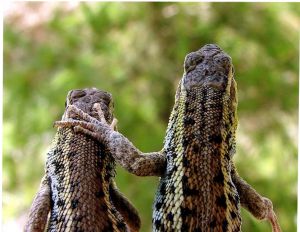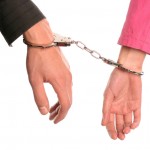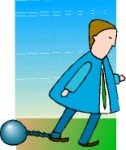Codependency, Enabling Behavior, Tough Love
 Codependency, Choice, Taking Responsibility and Helping Ourselves
Codependency, Choice, Taking Responsibility and Helping Ourselves
How do we help those who are unwilling to help themselves? When we help those in need, are we in essence enabling them…standing in the way of them taking responsibility for their own life, preventing them from finding their inner voice and inner strength? At what point does our love and desire to help those we love actually backfire? Clearly our children are dependent upon us for sustenance, love and nurturing for a good portion of their lives, but what about our spouse, friends, neighbors, extended family, work associates work, etc?
Do we overprotect those we care about the most? If we constantly rescue those we love from making mistakes, will they ever learn to grow from them or will they simply become dependent on our help for their own well being? By helping others, do we prevent them from helping themselves? Although I am clearly no psychologist, some would define this as the psychological definition between helping HELPING and ENABLING, and just to be clear, we aren’t specifically talking about alcohol or drug addiction here.
- Helping is generally defined as doing something for someone else that they are not capable or are unable to do for themselves.
- Enabling is commonly defined as doing something for someone else that they could and should be doing for themselves.
So what’s the difference? Where is the boundary between helping someone and enabling them?
PACE University states that: Sometimes when we “help” someone who has a substance abuse problem (or any other problem for that matter), we make it easier for them to avoid the consequences of their drinking and actions. In our protection, the person with the problem is subtly encouraged to continue their behavior since they have learned that someone will always help rescue them from their mistakes.
When is helping NOT codependency?
Codependency is defined as = suffering and/or dysfunction that is associated with or results from focusing on the needs and behavior of others. A constellation of responses by significant others, particularly family, to being involved with the dependent. (http://www.allaboutcounseling.com/codependency.htm)
Before we can care for another, we must care for ourselves; first and foremost our world revolves around our own life. Just as the Earth revolves around the Sun, our reality is determined by that which we perceive with our senses; physically, emotionally, mentally and spiritually. I can no more fully understand your past than I can predict your future. However, by understanding my own, I maintain the ability to make choices that are in alignment with my path and purpose in life.

Codependency Enabling
Our life is the result of the choices we make. The condition of our affairs is the result of the decisions we have made throughout the entire course of our existence. The quality of our relationships, the condition of our home or automobile, and the quality of our work is all the result of the choices we have made thus far in life. As a result, the only way to change the future is to alter our decision-making in a method and manner consistent with our desired destination. We can blame no-one for the current condition of our life; our happiness and fulfillment is predicated upon our ability to take responsibility for our life.
Here are some examples of enabling behaviors…
- Repeatedly bailing them out – of jail, financial problems, other “tight spots” they get themselves into
- Giving them “one more chance” – …then another…and another
- Ignoring the problem – because they get defensive when you bring it up or your hope that it will magically go away
- Joining them in the behavior when you know they have a problem with it – Drinking, gambling, etc.,
- Joining them in blaming others – for their own feelings, problems, and misfortunes
- Accepting their justifications, excuses and rationalizations – “I’m destroying myself with alcohol because I’m depressed”.
- Avoiding problems – keeping the peace, believing a lack of conflict will help
- Doing for them what they should be able to do for themselves –
- Softening or removing the natural consequences of the problem behavior
- Trying to “fix” them or their problem
- Repeatedly coming to the “Rescue”
- Trying to control them or their problem
(Courtesy of http://www.internet-of-the-mind.com/enabling_behavior.html)
Stop Enabling Behavior?

Ball and Chain Enabling Codependency
We cannot fix those we love, and in fact quite often when we attempt to do so it backfires. How do we get beyond this? We can blame this on those we love, but it is really our own ability to make the choices that are in alignment with our path and purpose in life. If you are unable to say no, perhaps it is you that needs some help. Here are a few resources to help you along the way:
Resources:
As always, I would love to hear your thoughts and insights, please share them below.
8 Website Comments
Leave a Website Comment












Great article. I am going to link to this. Codependency is so subtle. For a long time I had no idea I was this way. My biggest form of codependency was making excuses for others, and feeling guilty that I wasn’t able to be “good enough” to truly help them with their illnesses. After seeing this pattern in my relationships throughout my life, I can honestly say I was very codependent. It has been a wonderful journey to explore being kind and loving to myself. I let go of self-sacrifice and embrace self-care.
Codependency is such a subtle beast. I’ve spent much of my life unlearning the ingrained behavior patterns from my early conditioning – to put others first and myself second. I’ve had to replace those patterns with new ones: taking care of myself first and setting boundaries with others. Yes, it’s tough love and it’s been tough on me. It is far too easy to give myself away to people who don’t deserve it.
So why have I done it? Probably, because it has made me feel important. It is a sense of pride I need to release, over and over again. What I have done truly helps neither me nor the other.
I will never forget the words of a recovering addict I once heard speak, “Don’t ever take the addict’s pain away from him. If you do, he’ll never recover.
Very good and balanced article.
Our poor and famish ego has much to do with the article.
Thank you for this post! I stumbled on it by googling “enabling behavior.” I am right in the middle of working to align a close family relationship with my “own path and purpose” and guess what: I feel awful! I feel guilty etc, not common feelings for me, which makes me understand how important this is. I believe my “guilty” feeling is just another cover-up for admitting that I have been enabling a terrible condition, not really helping. Changing life-long habits is hard, but nothing compares to the solidity of standing in my own loving truth.
Hello, I am a mother of 5 children and 6 step children. I have seen 2 of my children with different problems of substance abuse. I appreciate any and all help with the “I want to help but not enable”. I feel I make sensible and rational decisions helping them but sometimes I wonder if I am enabling them. We need to help each other with any info on this matter due to the fact that more and more parents and grandparents are faced with this situation daily.
I’m in the middle of seperation from my husband whom I gave so many chances and with my codependent behavior I pushed away and away. I have a 3 year old and it’s been really hard on me. I couldn’t recognize my almost “obsessed” behavior towards him, constantly calling him, never trust him and drove him crazy. He blamed me for the smallest to biggest things and I felt that he was right and I was the one destroying our relationship. In a way, by giving him chances over and over, tolerating so much than a human can and should in a relationship, I taught him that his behaviors were OK.. Now I’m finding out about myself and trying to be in peace with who I am, and how many friends i have that truly love me and support me. That’s my strength and I’m using them to get back to my own self, detaching myself from the silly little world I trapped myself in.
Positive thinking is not always easy, because my husband is a self absorbed person who is very convincing when he says things.. he believes his own way and nobody else’s. that made everything harder and it is still hard. I let my guard down every now and then, but I know with time.. it will be better. I need to love myself and who I am.
For years my codependent behavior has tainted all of my interpersonal relationships. I’m unable to trust anyone…even the one person who has suffered so much pain because I’m emotionally absent. I hope that I not too late coming to these realizations and that I can change to save myself and not lose the one person who loves me “warts and all .”
One is never too late to change, evolve, and awaken. We each can only the very best with what we are given – but that doesn’t mean that we don’t have a responsibility to show up and do the work that is required. Clear intention and focused action will get you most of the way. Good luck – and let me know if I can help you in any way.